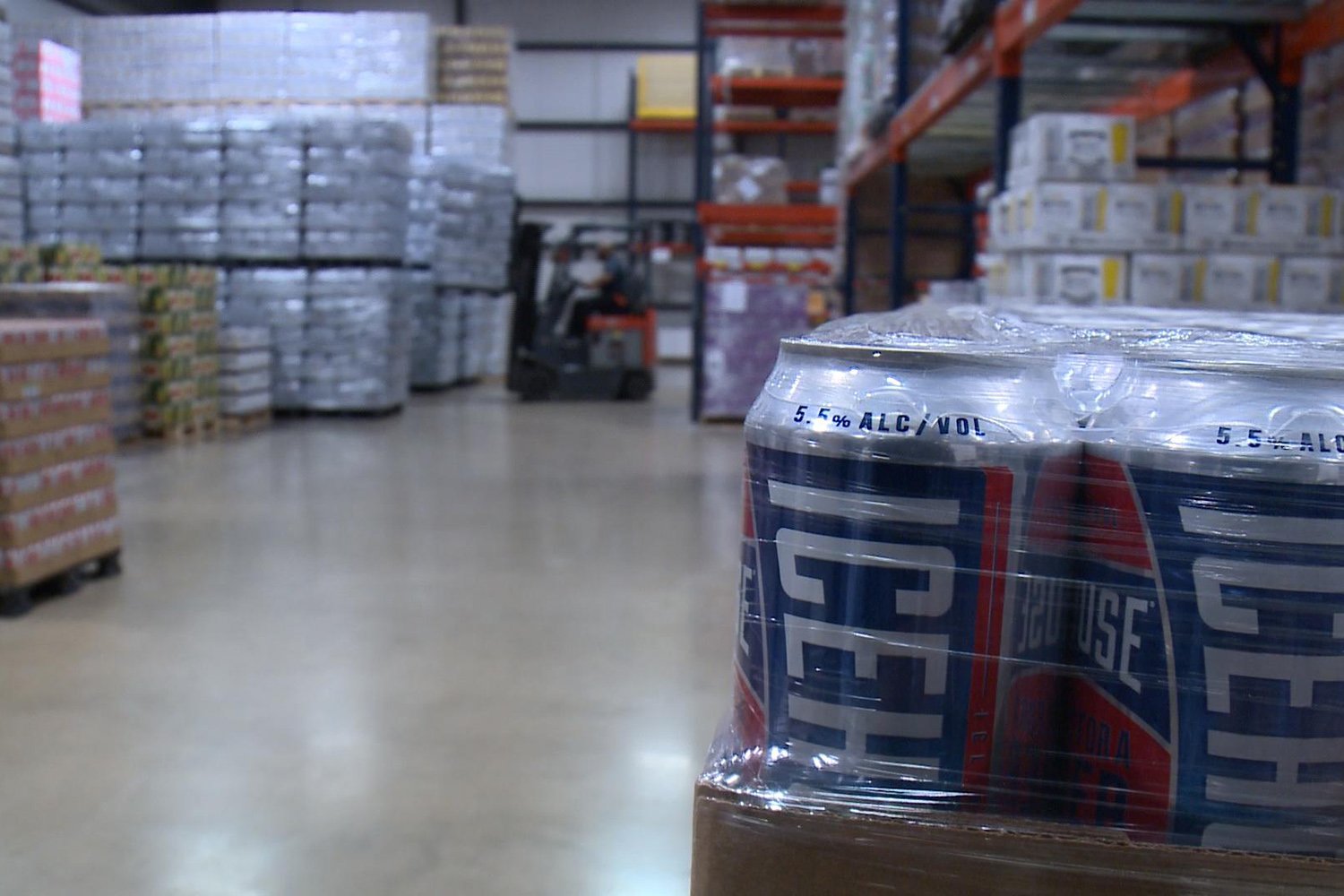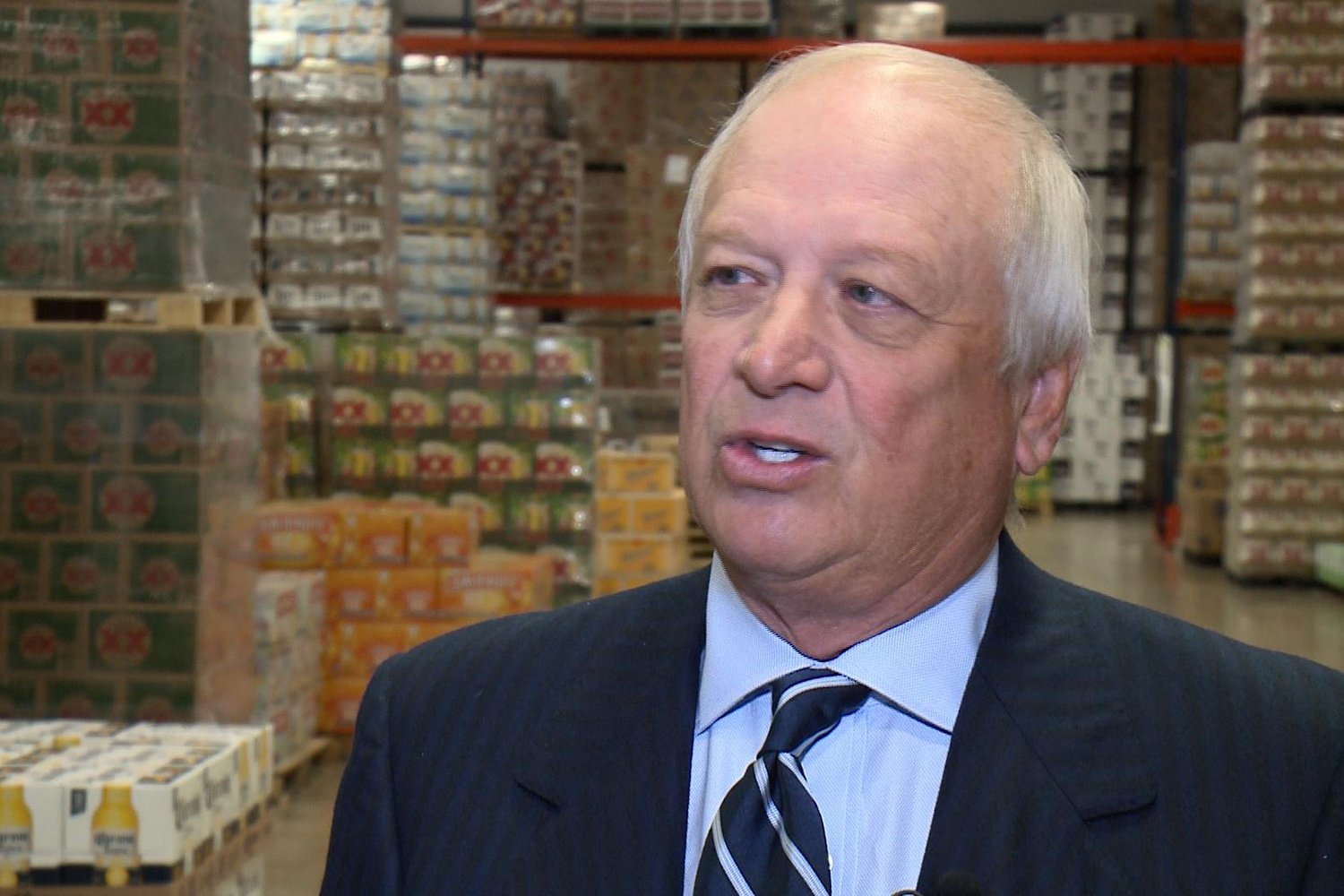/https://static.texastribune.org/media/files/d19089ab84c9b7d7b920bd0a28f9cf71/Salt_Lick_2_TT.jpg)

DRIFTWOOD — In 1965, Thurman Roberts decided to turn his love of smoked meat into a business. So he built a barbecue pit on his ranch south of Austin and began selling brisket from a stand on the side of the road. Before long, he couldn’t make enough of it to keep up with the demand.
More than 50 years later, in 2017, The Salt Lick restaurant — so named because the first pit was built next to the salt-and-mineral blocks laid out for his cattle to lick — drew more than 700,000 visitors, about half from outside of Texas.
Thurman Roberts’ son, Scott, now wants to branch out into winemaking. He already has grapevines in the ground and is planting more. Roberts also has plans to build a lodge, two new restaurants and an events center on the fertile land his family started settling after the Civil War.
There’s just one problem: state government.
At the Texas Capitol in Austin, 20 miles north of here, lawmakers have packed so much red tape into the byzantine alcoholic beverage code that, unlike in wine-friendly California, it’s illegal for Roberts to own both a winery and a restaurant that serves alcoholic beverages.
That’s because Texas lawmakers adhere to a particularly strict interpretation of the “three-tier system” created in the 1930s after Prohibition ended to keep the makers, distributors and sellers of booze financially separated.
The system’s supporters say they’re sticking to these regulations to promote health and safety, to discourage over-consumption of alcohol and to ensure that large corporations don’t run mom-and-pop operations out of business.
Roberts has another theory: Wealthy wholesale beer distributors — the folks with the delivery trucks and warehouses who transport beer to retail outlets — have grown far more powerful than the other two tiers, and for years they’ve been pouring money into the campaigns of the people who write the laws.
“Right now the distributors won’t allow any kind of legislation or changes in order to protect their own self-interest,” Roberts said. “Political contributions. That’s just simply it.”
Big money from the “middle tier”
Campaign donation data demonstrates the power of the “middle tier,” as the distributors are known. According to numbers compiled by Texans for Public Justice, a liberal watchdog group that tracks the influence of money in state politics, beer distributors have given almost $11 million to state campaigns since 2013. That represents about 75 percent of all donations from the alcohol industry, according to a TPJ analysis.
A single donor, Houston beer distributor John Nau, gave about $3 million, Texans for Public Justice found. Nau’s company, Silver Eagle Distributors, is the nation’s largest distributor of Anheuser-Busch products. He also happens to be Gov. Greg Abbott’s campaign treasurer, the governor’s pick to lead the Texas Historical Commission and co-chair of the Associated Republicans of Texas. In the 2018 primaries, that group helped moderate Republicans in the House and Senate beat back serious challenges from candidates financed and supported by arch-conservative Empower Texans, whose allies in the Legislature are among the few who consistently vote against distributor interests.
Abbott has received far more cash from beer distributors — a cool $1.8 million — than any other state politician since 2013. Next in line were the two Republicans who set the agenda in the Texas Senate and House — Lt. Gov. Dan Patrick ($845,000) and House Speaker Joe Straus, ($585,000), Texans for Public Justice figures show. (Nau’s Associated Republicans of Texas Campaign Fund received at least $812,000 from beer distributor interests).

In the 2017 legislative session, the distributors flexed their muscles by pushing through HB 3287, which put new restrictions on the burgeoning craft beer industry while providing exemptions for three global beer giants. To the horror of the craft brewing industry, large bipartisan majorities in both chambers voted in favor of the bill and Abbott let it become law without his signature.
Rep. Jason Isaac, R-Dripping Springs — whose district includes the Salt Lick — was one of about two dozen House members who opposed the limits on craft breweries. Isaac said it’s been a lonely battle pushing free-market reforms in the distributor-friendly Texas Legislature.
“I’ve had members tell me, 'Jason, I can’t be with you on this because I’ve got a big distributor in the district, or [who] supports my campaign efforts' … which is kind of disheartening to me as a member,” he said. “Shouldn’t free-market principles be our guiding principle?”
For distributors, the answer to that question is — in a word — “no.”
Rick Donley, president of the Beer Alliance of Texas, which represents distributors, says free market principles are fine as long as they are applied within the narrow confines of the three-tier system.
He points to other countries that allow “tied houses,” in which beer makers, for example, own bars that peddle their own brew, allowing them to boost sales while keeping competitors from gaining a foothold.
Tear down the three-tier system in Texas, Donley says, and you can kiss the growing craft beer industry goodbye because the major brewers could buy bars or other retail outlets and use their newfound market power to crush new market entrants.
“You better really like Anheuser-Busch products because … they would be the controlling interest at least for malt beverages,” he said.
Seeking a carve-out from the Legislature
The Salt Lick’s owner is quick to say he does not want to blow up the regulatory scheme that keeps manufacturers, distributors and retailers in their own silos. Roberts says he has no interest in going into the wine delivery business or starting a retail wine store — but he does want to make wine and sell it along with other alcoholic beverages at his restaurants and future event centers.
“We firmly believe in the three-tier system,” Roberts said. “No way could a small winery market throughout the state.”
Roberts wants the Legislature to give him what’s known as a “carve-out” — an exemption from the three-tier system that would narrowly apply to the Driftwood Economic Development Municipal Management District, which includes his family’s land. Lawmakers gave a similar exemption to brewpubs, which can make beer and sell it (along with other spirits) to consumers in a traditional restaurant setting.
A carve-out would let Roberts operate the same way — a wine pub, basically — but wouldn’t apply anywhere outside his tiny slice of the Hill Country. Any wine sales outside the area, he says, would be handled through wholesale distributors — ensuring they get their cut.
“Vineyards increase property values, vineyards create jobs, vineyards create sales tax,” he said. “It would not only benefit metropolitan areas, it would benefit the extreme rural areas and the mid-rural areas if you had the flexibility to do things like that.”
But if next year’s legislative session is anything like last year’s, Roberts will be lucky if he can even get a bill on the floor of either chamber. Isaac, his state representative, filed carve-out legislation in 2017 that would have let the Salt Lick own a winery and keep its retail alcoholic beverage licenses at his restaurants in Round Rock and at the Austin airport. (Under current law, wineries can serve wine at on-premises restaurants they own, but no other alcohol).
Given the opposition from beer distributors, Isaac knew he faced an uphill battle, but he figured he’d at least try to draw attention to the heavy protectionism enshrined in state law.
“There are people who have a stranglehold on the Capitol and don't want to see any changes to our three-tiered system at all,” Isaac said. “I knew right away that it wasn’t going to go very far.”
He was right: His bill died in the House Licensing & Administrative Procedures Committee, whose current members have received at least $372,000 from distributor interests since 2013, according to the TPJ data. Identical legislation in the Senate never even got a committee hearing.
Isaac won’t be back in 2019 to try again; he chose not to run for re-election and mounted an unsuccessful run for Congress.
Donley, the Beer Alliance president who testified against the Salt Lick carve-out in the House committee, said equating campaign money with policy results shortchanges “incredibly independent-minded individuals” in the Legislature. While he sympathized with the Roberts family, Donley worries one exemption could open the door to many more.

“The fear is you make that carve-out and somebody else wants a carve out, and somebody else wants a carve-out, and then all of a sudden the whole three-tier regulatory system has holes big enough you could drive a beer truck through,” Donley said.
Not that there haven’t been carve-outs before. When the Lubbock airport was built in a “dry” area in the 1970s, the Legislature came to the rescue with a carve-out allowing it to bypass local voters and serve alcohol. Brewpubs got the right to both make and sell limited amounts of beer in the 1990s.
And then there’s the mother of all carve-outs — crafted after Anheuser-Busch bought SeaWorld in San Antonio in 1989 and couldn’t fathom a theme park without beer sales. The Legislature brewed up a narrowly written bill allowing retail alcohol sales at any “marine park” in “an enclosed restricted access area of not less than 254 acres nor more than 255 acres in a county with a population of over 950,000.”
“If the public wasn’t damaged doing it for a major corporation, how is the public going to be damaged for a smaller individual?” Roberts asked.
Would California model fly in Texas?
Perhaps the best indication that a wine carve-out for the Salt Licks of the world won’t trigger a three-tier apocalypse can be found in, of all places, California, the state that Texas leaders like Abbott — author of a 2017 opinion piece entitled “Overregulation Makes Texas Dream A California Nightmare” — love to portray as the poster child of nanny state socialism.
When it comes to alcohol policy, though, the Golden State, while maintaining three separate tiers, is something of a gold standard for free-market innovation. Californians can buy whiskey at Costco and Walmart. Craft beer makers can sell six packs at their breweries. And California wineries can own up to two restaurants with alcohol serving privileges — an exemption that longtime industry lawyer John Hinman calls a crucial marketing tool.
“In California this one of the most popular exemptions we have. It’s not only wineries but there is a similar exception for distillers,” Hinman said. “The ability to have restaurants where wine can be featured, especially local wines, attracts tourism, and tourism attracts business.”
Donley, for one, is not persuaded: “Everything that’s done in California, I wouldn’t endorse to begin with.”
Roberts, 66, is convinced that tiny Driftwood has the perfect soil and the natural beauty to rival anything the Napa Valley can offer — all within a short drive of fast-growing Austin. He’s planted about 50 acres of grape vines and has plans to expand to about 80 acres.
Now, he’s hoping the law will change before he dies so his daughter can inherit both a winery and his restaurants. Under current law, he says she’d have to sell one of them shortly after his death.
And as the 2019 legislative session approaches, Roberts has a message for state lawmakers.
“Free us. Free the Texas wine industry,” he nearly shouts. “And quit drinking that California wine.”
Disclosure: John Nau, Rick Donley, the Beer Alliance of Texas, Anheuser-Busch and Walmart Stores Inc. have been financial supporters of The Texas Tribune, a nonprofit, nonpartisan news organization that is funded in part by donations from members, foundations and corporate sponsors. Financial supporters play no role in the Tribune's journalism. Find a complete list of them here.
Information about the authors
Learn about The Texas Tribune’s policies, including our partnership with The Trust Project to increase transparency in news.
/https://static.texastribune.org/media/profiles/Jay_at_Cloak_TT.jpg)